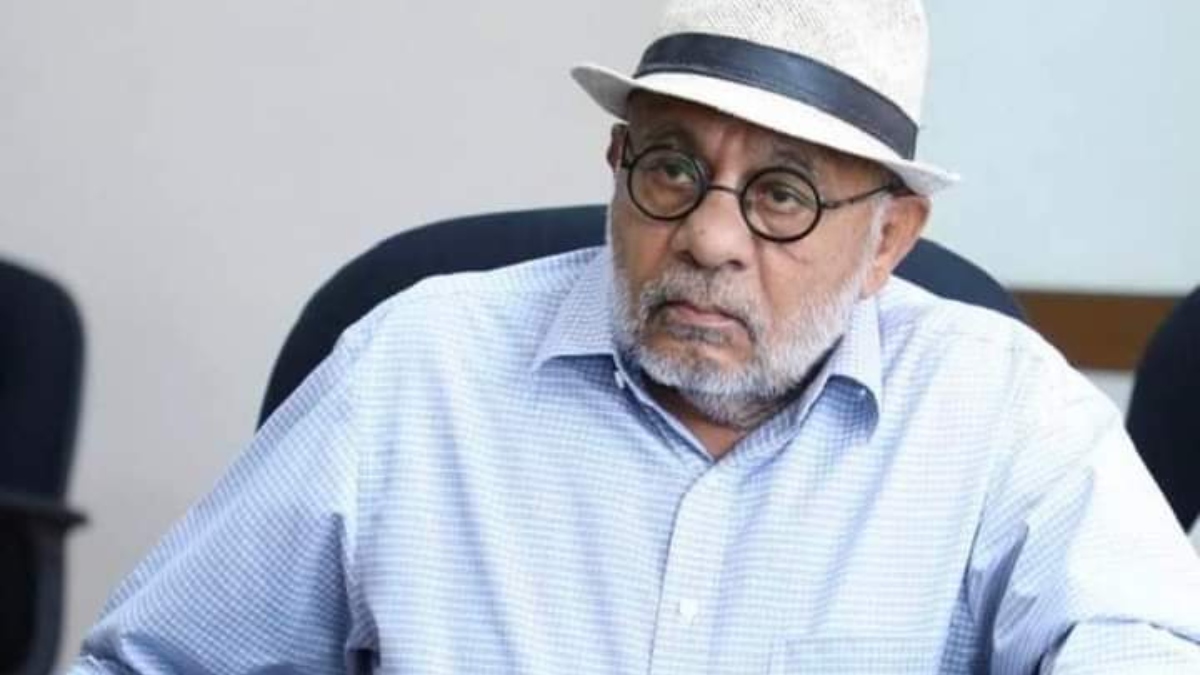THIRUVANANTHAPURAM: 'Aadujeevitham', which struck gold at the State awards this year, brewed in the simmer for 16 years. The scripting, which started around 10 years ago, and shooting some six years. To transform the 2008 Benyamin bestseller that went through 100 reprints into a survival drama that had a stellar cast and crew line-up would have been quite a task.
And hence Anand Ekarshi, raking in bliss of the national award win for 'Attam', says 'Aadujeevitam's adaptation into a film is an achievement for which Blessy deserves more than an applause. "Making a movie out of novel is a task unimaginable. It is not the same as with a short story.

To showcase the mental journeys undertaken by novels is difficult and hence films can hardly reach the spaces that a novel can. But it is heartening to see good literary works even in the form of short stories now being made into movies," he says. Even with the confidence of making a movie work into such a success, Anand says he would think twice before embarking on to use novel as a source for films.
"There are several works that I am in awe of. Like Khasakinte Itihasam. But to make it into a film is not easy.
It would require different tools of filmmaking. And a precision that would require a perceptive that can do justice to the work even while making it appealing for the audience," he says. When it comes to translating literary works into movies, the audience is a huge guiding factor, says R Shyamaprasad, whose 'Agnisakshi' based on a novel by the same name by Lalithambika Antharjanam had won the national award in 1999.
"While working with the script, we cannot ignore that books and films are two different medium. But out commitment is to our viewers and we have to serve that," he says. The lull in literary space that Malayalam films faced from the late 1990s to 2010 was made up in trickles by the adaptations of short stories as movies by filmmakers such as Lijo Pallissery.
For an industry that has seen masterpieces being made into films, this sure was glaring at least for those booklovers who revelled watching Chemeen, Mathilukal and Daivathinte Vikruthikal. Still that a popular literary work is being adapted into films need not be seen as start of a trend nor is it a pattern that is making a comeback, says Shyamaprasad. "The whole idea of a book being adapted into a movie is a standalone.
Even if the film is born from the book, the filmmaker has to feel the pulse of the work and incubate it in his experience. And a lot of factors---audience for one---plays a role in the adaptation, according to him. "For example, when Agnisakshi was made or works before that, social media was non existent.
But 'Aadujeevitham' and contents and discussions over it were all over the net and platforms based on it." Also, in the social media age, audience sway is string enough to change the reach of any form of art. "Agnisakhi was not made in such a milieu.
But all those doesn't matter when it comes to films," he says. A good film is film well made, and need not be influenced by literature nor does it have a greater commitment towards it than to the audience. "But definitely it is always good to bank a film on a work that has stood the test of time than cook up some plot for a film," he says.
From Neelakuyil in 1950 based on a story by Uroob to the Muttathu Varkey works that turned popular films to big names such as MT Vasudevan Nair, Vaikom Mohammed Basheer, Thakazhi Sivasankara Pillai, Ponkunnam Varkey, and Padmarajan whose cinematic associations have made magic, Malayalam film's dependence on literature is deep and indelible. "The lull was hence palpable and if it is giving way to more literary pieces being made into films, the change is always welcome," says K Jayakumar, former bureaucrat and lyricist. Cinema cannot afford to ignore literature's role as a enriching source, he adds.
He also agrees that the commitment that an adaptation can have to the original work need not be total. "Medium is different and so has changed the times and the audience quality. The idea has to be tamed accordingly.
We live in an age when the films may lead the viewer who has veered away from literature ack to books," he says. An example of this is books in the Ponniyin Selvan series that topped the chart in sale at most book fairs around the time the movie was released. In several cases in the past, there have been discontentment expressed in media over film adaptations of literary masterpieces when writers felt their works were tampered with.
But such changes would not be matter of debate even now because of change in perspectives, says Srivalsan J Menon, part of the jury who chose this year's State award winners. "It will be and it has to be different because of the shift in perspectives in both the mediums. One cannot catch all that is in a book into a film.
That is why it needs to be looked at as an independent adaptation," he says. This is also the reason why a short story can be easily adapted into films than a novel. "For the last 4-5 years, we have been seeing a lot of short stories being made into films especially Lijo's movies.
And people are keen to watch them," he says, adding idea, and the precision with which it is conveyed, is all that matters..



















